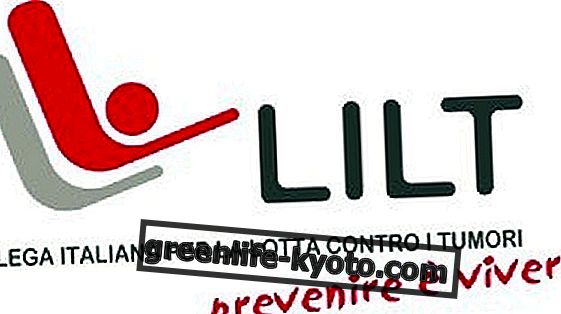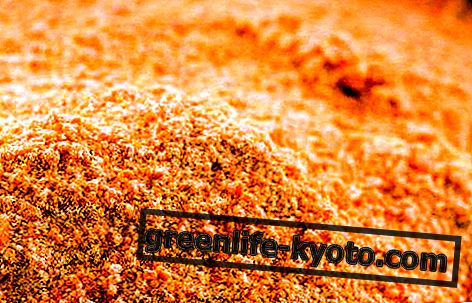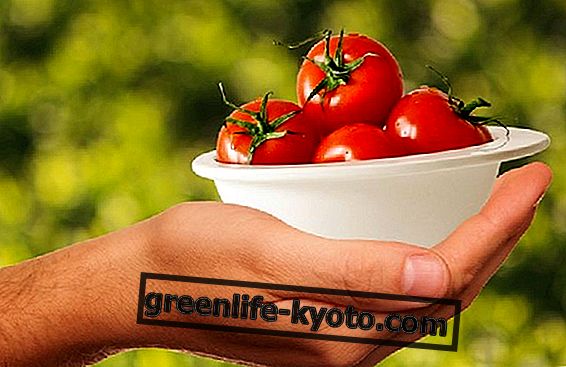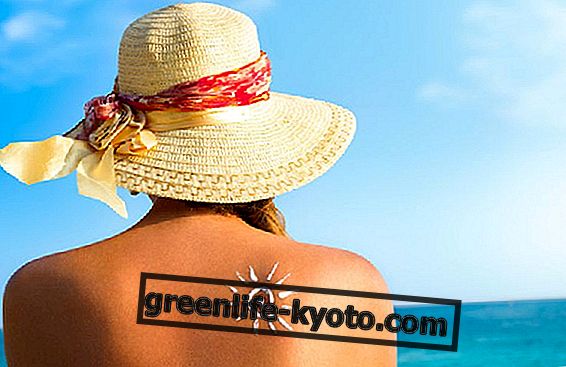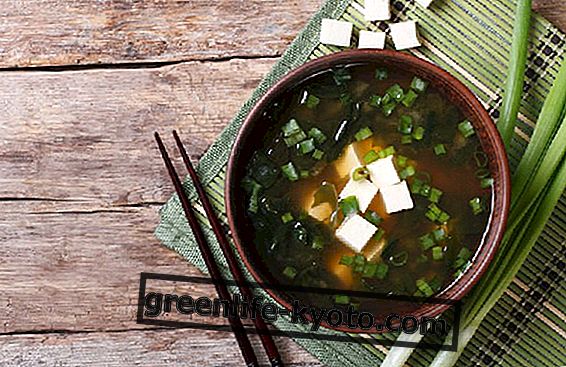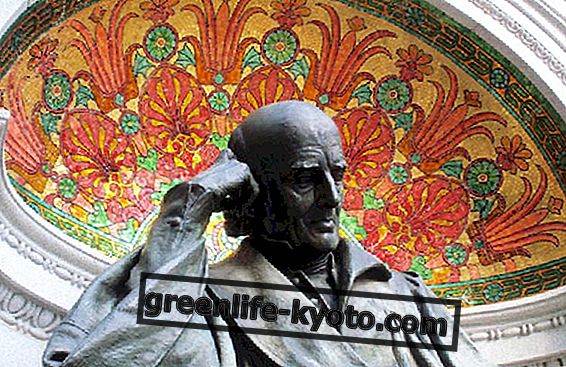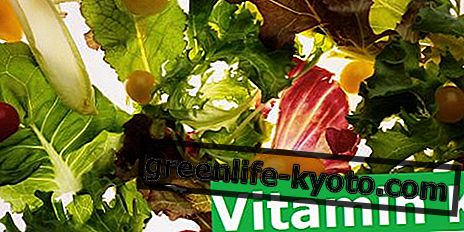
In the first month in America it happens to fill up with exciting, astonishing, amazing and so on. Not that it happens to everyone and by force, but this is the experience of many. A friend, born in America but half Irish, one day tried to explain to me why the frequency of stunned and enthusiastic exclamations was so high, he replied: "We are puppies compared to much older civilizations. Everything surprises us." A wise answer.
If at the top of a preface is Hippocrates, there is no need to give, excuse the assonant pun, automatic authority to the author. Perhaps the reaction of many Europeans to various food and non-food issues is oriented towards skepticism at all costs and even this lack of balance is not good, because it is raging on the charge, the enthusiasm, it closes the possibility instead of opening it .
Just with a quote from Hippocrates begins "The China Study", a worldwide bestseller written by two hands by T. Colin Campbell and his son Thomas M. Campbell II.
The authors of The China Study
Some information on the authors: T. Colin Campbell teaches Biochemical Nutrition at Cornell University and, together with his son, Thomas M. Campbell II, has, as it is written on the cover of The China Study, contributed to the "writing of this extraordinary work".
We went in search of some biographical notes on Thomas M. Campbell II: the young rampant graduated from the university where his father teaches and "his involvement in the co-creation of The China Study led him to undertake new studies at the University of Buffalo and to want to practice medicine based on the philosophy presented in The China Study . " Vague, but we are content to finally get to the heart of the topics covered in this book that is taking shape as a real theory announced as innovative with a special site.
Our reflections on the book
If you are going to read The China Study you must keep in mind that the average reader of reference is the obese or terrified American from the idea of having a cancer and not having an insurance that covers medical expenses. Once you understand this, you will do without irritating yourself with the triadic, almost Hegelian rhythm on which the whole text rests:
A) In the first instance, the authors take the tone of those who are shocked by the progress of the facts on the subject of nutrition (the cult of the hot dog, the advertisements of various "poisonous" products such as Twinkies, M & M's, Frosties that appear in magazines of children aged 6 and up and other such examples)
B) The second movement is a declaration of intent. The authors propose to unmask those who want to boycott your health ( "[...] they want you docile, condescending, ignorant", [...], page 11, in the preface by John Robbins, another American author dealing with food ; or, the author's words, ("[...] Americans must know the truth: they must know what we have discovered with our research. People must know why we get sick in a completely unjustified way, because too many of us die prematurely despite the billions spent on research. " );
C) Dulcis in fundo, the promise of a valid alternative appears, the one offered by the text itself, obviously.
Discover the China Study Tour 2015
A very specific dimension is therefore described that is implicitly extended to the whole globe, perhaps not without reason, considering the ease with which certain eating styles based on so-called "empty calorie" diets spread even overseas. Once the assumption is over, let's get to the heart of the matter.
The book provides significant statistics, analyzes the disorders of our era and traces a worldwide atlas of them, with particular attention to the comparison with mortality due to illness in 170 villages in mainland China and Taiwan. It starts with the neutralization of the myth of the protein, the same myth that came to us from America through the famous Atkins diet .
The diet demonized the consumption of carbohydrates in favor of increasing daily protein intake. With devastating results over the long term, compared to an obvious weight loss in the short term; the subjects sampled during the 24 weeks of diet reported constipation, heavy breath, hair loss; in practice, all consequences of an excessive accumulation of toxins). Campbell unmasks this diet that has been torn to pieces in Europe for years now.
For what reasons? We retrace them.
Prior to burning fat, our body is forced to produce ketone bodies, given the brain's inability to use energy fats. These substances lower the blood pH (the blood becomes more acidic) and trigger symptoms such as nausea, headache, fatigue and, in extreme cases, coma. It should also be pointed out that the reduction of carbohydrates also involves the elimination of important amounts of fiber present in it and that the diet does not precisely regulate the amount of fat that can be consumed. In general, it is a diet that brings a lot of stress to the body and creates further disorders that can even become chronic. Faced with a high intake of animal fats, the Atkins diet leads to a lack of fiber, vitamins and mineral salts ; if followed for a long time it causes loss of potassium and sodium and can cause constipation. Deficiencies can be remedied by external additions, but the physician's supervision must be constant. One would say to Campbell: thank you very much, we had already noticed it, nothing new on the western front.
Recall that at the time of his university studies , the author himself wrote a doctoral thesis focused on the so-called protein gap, or the factor by which, in the seventies, there was a tendency to think that world hunger and child malnutrition depended directly on the insufficient amount of protein. In summary, hunger was associated with a protein deficiency and proteins were the undisputed queens of any discourse on nutrition, they were worshiped, adulated. We don't blame him for this: we know, we change.
Then, as a thought unearthed on the net in a site ( FrancescoWord ) that offers an interesting work on different levels of disinformation explains well: "Americans are confused, and I will tell you why. The answer, illustrated in part IV, has a what to do with the methods of generating and communicating health information and with those who control these activities, having been behind the scenes producing health information for a long time, I have seen what actually happens and I am ready to tell the world that what's wrong with this system: the lines of demarcation between government, industry, science and medicine have become indistinct, as well as those between the pursuit of profit and the promotion of health.The problems connected to the system do not arise under the forms of corruption that we are used to seeing in Hollywood movies. The problems are much more subtle, yet far more dangerous, resulting in enormous disinformation, which consumes average American bulls pay twice: on the one hand they pay research fees and on the other they provide the money so that health care heals diseases that could be largely avoided ".
What this book tells us, however, has already been told by Pythagoras, Socrates, Plutarch, Leonardo Da Vinci, JJ Rousseau, Benjiamin Franklin, Lev Tolstoi, Albert Schweitzer, Mahatma Gandhi, Albert Einstein, CW Leadbeater; the list goes on and arrives at vegetarian statements also linked to data, as in the case of the wise study recently conducted by the nutritionist Hervé Grosgogeat, a study that we recommend, which we like because it does not alarm, creates alternatives, informs clearly, provides tools for self diagnosis. The accusation against refined carbohydrates, the praise of a natural and vegetable diet, all elements that those who are interested in nutrition will have already had the opportunity to investigate and adopt.
Campbell examines, so, it must be said, a little alarming ( "We are sick, overweight and confused", p. 111), the most widespread diseases of well-being and bone, kidney, ocular and cerebral pathologies, disorders such as diabetes, obesity, heart and autoimmune diseases, and then adduces data showing that food is directly related to each of these diseases. Chapter 12 " How to eat " makes us breathe a sigh of relief and provides valid, concrete information, concrete examples.
On the other hand, the author succeeds in his intent, already declared from the first pages: to present in an accessible form scientific data collected in a study of considerable importance directed by Campbell himself, started in 1983 and still active. There are two things we need to think about: this laboratory research program has so far included experiments on animals as a consolidated practice; then, between congressional commissions, medical institutions, federal and state agencies, the project was supported and funded properly for a total of 74 years of grants, even before Campbell took the reins.
This brings us back to animal rights, first of all and, secondly, to the brain drain that touches our country closely.
Let us reflect, let us accept, let us compare ourselves.
